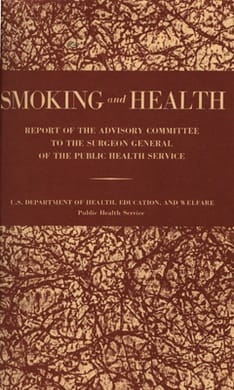In a bold move to address public health concerns, the U.S. Surgeon General has issued a call for alcohol products to carry explicit warning labels about the potential risks of cancer associated with their consumption. This recommendation is grounded in a growing body of scientific evidence that demonstrates a clear link between alcohol intake and an increased risk of several types of cancer, including breast, liver, and colorectal cancers.
The announcement comes at a time when alcohol consumption remains prevalent in American society. According to the National Institute on Alcohol Abuse and Alcoholism, over half of adults in the United States reported consuming alcohol in the past month, highlighting the need for effective public health messaging. The Surgeon General’s office emphasizes that while moderate alcohol consumption may be socially accepted, it is crucial for individuals to understand the health implications associated with their choices.
Research indicates that alcohol can alter the body’s ability to metabolize and process various substances, which may contribute to cancer development. Ethanol, the active ingredient in alcoholic beverages, is classified as a Group 1 carcinogen by the International Agency for Research on Cancer. This classification means that there is sufficient evidence to conclude that alcohol consumption can cause cancer in humans. The Surgeon General’s call for labeling aims to inform consumers of these risks, allowing them to make more informed decisions regarding their health.
One of the primary goals of this initiative is to increase awareness about the risks of alcohol consumption, particularly among vulnerable populations. Studies have shown that certain demographics, including women and individuals with a family history of cancer, may be at a higher risk of developing alcohol-related cancers. By implementing warning labels, the Surgeon General hopes to foster a culture of awareness that encourages individuals to consider their alcohol consumption habits more critically.
The proposed warning labels would be similar to those already required on tobacco products, which warn consumers about the dangers of smoking. These labels would serve to remind individuals that alcohol consumption is not without its risks, particularly when it comes to long-term health effects. The Surgeon General’s office believes that such labeling could serve as a catalyst for behavioral change, prompting individuals to reassess their drinking habits and consider moderation or abstinence.
Furthermore, the initiative aligns with broader public health efforts aimed at reducing the incidence of cancer in the United States. According to the American Cancer Society, cancer remains one of the leading causes of death in the country, with an estimated 1.9 million new cases expected to be diagnosed in 2023 alone. By addressing the role of alcohol in cancer risk, public health officials hope to reduce the burden of this disease and improve overall health outcomes for the population.
In response to the Surgeon General’s announcement, various health organizations have expressed support for the initiative. Advocacy groups focused on cancer prevention and public health have long called for increased awareness regarding the relationship between alcohol and cancer. They argue that clear labeling could help shift societal perceptions of alcohol consumption and promote healthier lifestyle choices.
However, the proposal has also faced criticism from some sectors, including the alcohol industry. Industry representatives argue that existing research on alcohol and cancer is complex and that warning labels may oversimplify the issue. They contend that moderate alcohol consumption can be part of a balanced lifestyle and that consumers should not be deterred from enjoying social experiences that include alcohol.
As discussions surrounding the Surgeon General’s recommendation continue, it remains to be seen how regulatory bodies will respond. Implementing such a labeling requirement would require collaboration among various stakeholders, including government agencies, health organizations, and the alcohol industry. If adopted, this initiative could mark a significant shift in how alcohol products are marketed and perceived by consumers.
In conclusion, the U.S. Surgeon General’s call for alcohol to carry cancer warning labels represents a proactive step towards enhancing public awareness of the health risks associated with alcohol consumption. By providing consumers with critical information about the potential dangers of alcohol, this initiative aims to empower individuals to make informed choices regarding their health. As the conversation around alcohol and cancer continues, the importance of public health messaging in shaping societal attitudes toward alcohol consumption cannot be overstated.



